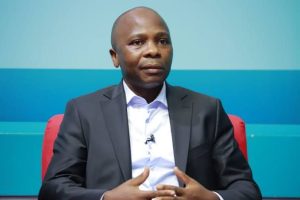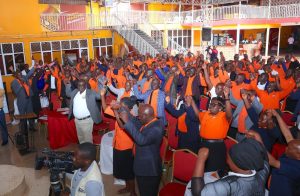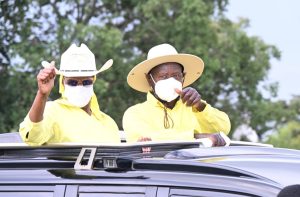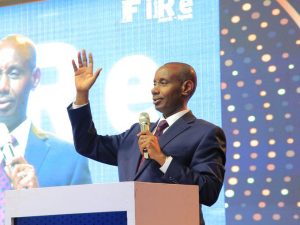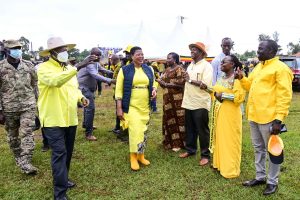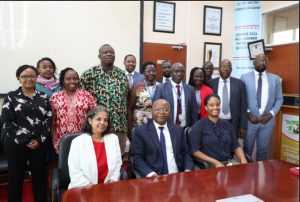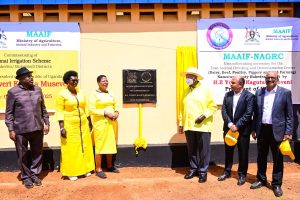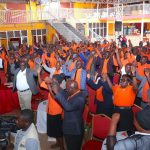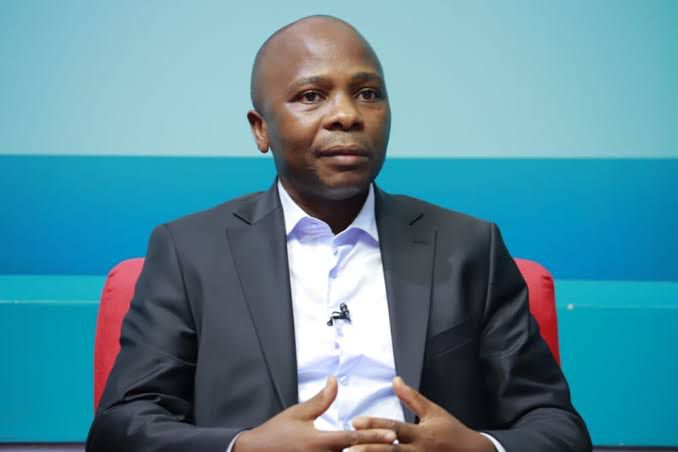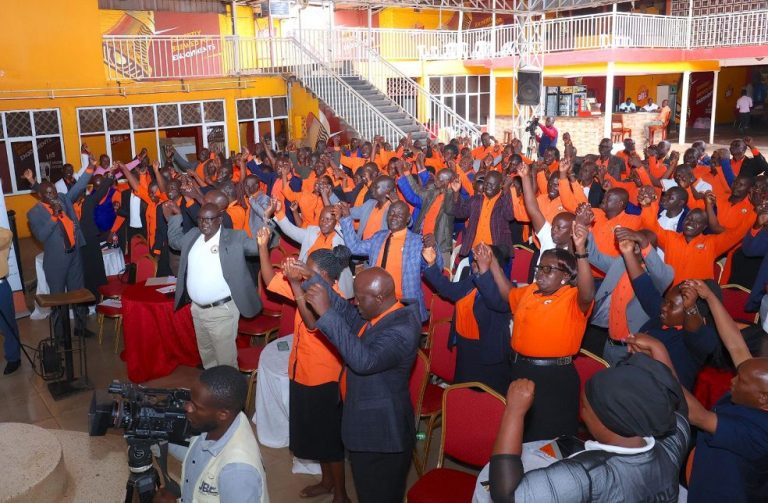The Uganda Bureau of Statistics (UBOS) has reaffirmed its long-standing partnership with the World Bank, committing to deepen collaboration in poverty measurement, data production, and statistical capacity building.
The commitment was made during a high-level meeting at Statistics House in Kampala, where UBOS Executive Director, Chris N. Mukiza, hosted a delegation from the World Bank Group, led by Rinku Murgai, Head of the Equity and Poverty Team.
The meeting focused on advancing data-driven approaches to poverty analysis, including the use of small area estimates– an advanced statistical method that enables localized poverty measurement and evidence-based planning.
In his remarks, Mukiza commended the World Bank for its consistent technical and financial support towards Uganda’s statistical development.
“We appreciate the World Bank for its continued support towards Uganda’s statistical production. UBOS remains fully committed to sustaining this partnership, which has, over the years, strengthened our capacity in data production and poverty measurement,” Mukiza said.
He further emphasized UBOS’s readiness to ensure its staff receive necessary technical training to enhance skills in poverty analysis.
“UBOS will ensure that our staff have access to all the training needed to build technical capacity in small area estimation and data analysis. We stand ready to provide timely and accurate data required for sustainable poverty measurement and policy planning,” Mukiza said.
Speaking on behalf of the World Bank delegation, Rinku Murgai underscored the critical importance of using official national statistics to guide effective poverty reduction programs.
“It is essential that poverty characteristics, trends, and drivers are drawn from official government data. The World Bank publishes poverty estimates every five years based on both monetary and non-monetary indicators derived from official sources,” Murgai said.
She also called for the generation of a refugee analytical report using data from Uganda’s National Population and Housing Census, highlighting the need to understand refugee dynamics and their impact on poverty levels.
“To achieve this, we propose forming a joint working group to enhance collaboration through training, information sharing, and evidence-based policy recommendations,” Murgai said.
UBOS Deputy Executive Director, Vincent Fred Senono, praised the World Bank’s openness in knowledge sharing and capacity development.
“We value the World Bank’s willingness to share information and build UBOS’s technical capabilities. Their support has strengthened our analytical capacity, especially in tracking government programs like the Parish Development Model, which aims to transition households from subsistence to the money economy,” Senono said.
The meeting concluded with both institutions reaffirming their shared goal of advancing data-driven decision-making in Uganda’s development planning processes.
The collaboration between UBOS and the World Bank continues to play a pivotal role in strengthening Uganda’s statistical systems, ensuring policymakers, development partners, and communities have access to high-quality data for informed decision-making and sustainable growth.




